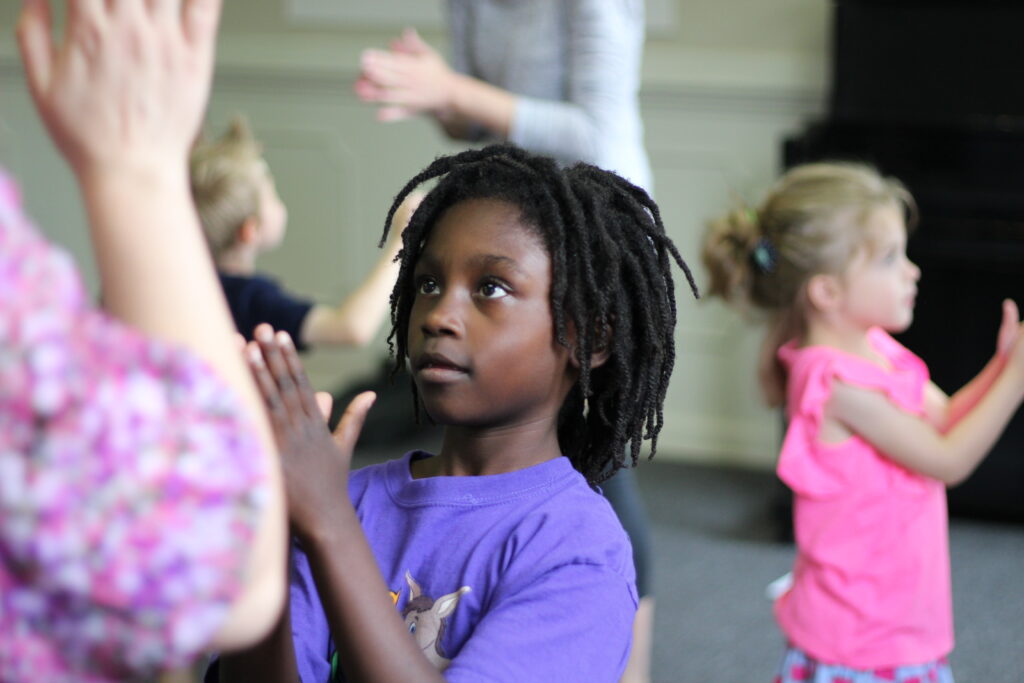It is no surprise to anyone involved in fine arts education over the last several decades that arts classes have been gutted in public schools all across America. Since the recession of 2008, 80% of the nations schools were faced with budget cuts. That, along with No Child Left Behind and Common Core State Standards, pushed education administrators to prioritize math and science over other subjects such as music, drama, and art. Although the economy eventually recovered, these programs still have not. More recently, a robust economy showed some of the best state tax revenues in decades, administrators were looking at bringing back some support for these programs.
Enter Covid-19. The estimated impact of the pandemic on America’s creative economy is well documented. Quarantined from school, many children had no other access to music instruction or the fine arts. These cuts to the arts in public education has created a greater need for other organizations, such as early childhood music studios, to step up and fill the gap. Owners and educators of fine arts studios understand the many and crucial benefits that the arts provide to people of all ages, especially children.
The Benefits of Music and Fine Arts Education for Children
Over the years, this blog has served to remind children’s music educators what they already know about the benefits of music instruction at the earliest ages. But in the wake of the Covid-19 pandemic, fine arts education is more important than ever:
- Children’s Music Class is a Chance to Actively Engage – Children crave interaction, both with their caregivers and peers. Music class provides a chance to sing together, dance together, and feel like part of a group. With so much isolation from others throughout the last year, it is important for children’s mental health to connect with others in a meaningful way.

- Music Class builds Self-Esteem in Children – Participation in music helps children to feel smart and accomplished. Singing and dancing together aids music students in understanding that an ensemble is more powerful than its parts, with everyone contributing their singular efforts to create something bigger. Helping them to understand that their part is important to the success of the entire sound create a sense of worth and value.
- Music can Help Relieve Stress in Children and Caregivers – Science tells us that simply listening to music releases dopamine and serotonin, but actively engaging and singing music also releases a hormone called oxytocin, which can alleviate stress and anxiety. This is not only helpful to children during the stressful home situations that Covid has produced, but for parents and caregivers as well. Participatory music classes with parents and children creates a way for a family to release anxiety.
- Music Exercises the Brain and Improves Learning in Children – Participating in music, as well as learning a new instrument such as piano, changes the brain and improves learning. Like exercise does for the body, music does for the brain – improving understanding of language and written communication. While teachers have been trying their best to keep children engaged over screens during the pandemic, music can serve to help keep their brains tuned up for learning and prepare to return to the classroom.
Including musical training, drama, and art into a school’s curriculum has been recommended by educational researchers again and again, but many school systems show no inclination to reintroduce these classes any time soon. Therefore, it falls upon outside fine arts education organizations to provide these all-important opportunities. For children’s mental health and preparedness in the aftermath of a pandemic, fine arts instruction is more important than ever.





